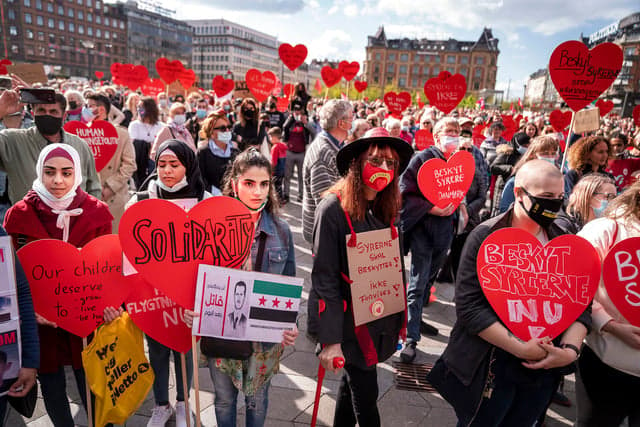European Court rules against Denmark's law on making refugees wait three years for family reunification

The European Court of Human Rights has ruled against Denmark's law requiring refugees to wait three years before applying for family reunification.
Syrian doctor Mosalam Albaroudi arrived in Denmark in 2015. Five months later, he applied for family reunification with his wife and was rejected.
The European Court of Human Rights in Strasbourg ruled on July 9th that the reason for the rejection of his reunification visa was a violation of human rights.
The case concerns a controversial change to Denmark’s laws in 2016, when Denmark’s Parliament (Folketing) passed the so-called “three-year rule” that required refugees to wait three years before applying for family reunification.
That’s why Albaroudi’s application was denied a residence permit for his wife. The decision was upheld by Denmark’s Supreme Court in 2017.
Albaroudi and his lawyer, Christian Dahlager, believed the decision violated the European Convention on Human Rights, and so they continued their efforts to overturn the ruling.
The Convention states that everyone has the right to privacy and family life, and that an authority can restrict this right only if it is necessary in a democratic society to protect a number of essential interests of society. It applies to members of the Council of Europe, to which Denmark belongs.
In its decision, the European Court of Human Rights stated that Denmark’s three-year waiting period has not “struck a reasonable balance between, on the one hand, the applicant's interest in being reunited with his wife in Denmark and, on the other hand, society's interest as a whole in being able to control immigration in order to protect the country's economic well being, to ensure effective integration and to maintain the cohesion of society.”
Sixteen judges voted in favor of Albaroudi, and one judge abstained. The court also awarded Albaroudi compensation of 75,000 kroner.
Comments
See Also
Syrian doctor Mosalam Albaroudi arrived in Denmark in 2015. Five months later, he applied for family reunification with his wife and was rejected.
The European Court of Human Rights in Strasbourg ruled on July 9th that the reason for the rejection of his reunification visa was a violation of human rights.
The case concerns a controversial change to Denmark’s laws in 2016, when Denmark’s Parliament (Folketing) passed the so-called “three-year rule” that required refugees to wait three years before applying for family reunification.
That’s why Albaroudi’s application was denied a residence permit for his wife. The decision was upheld by Denmark’s Supreme Court in 2017.
Albaroudi and his lawyer, Christian Dahlager, believed the decision violated the European Convention on Human Rights, and so they continued their efforts to overturn the ruling.
The Convention states that everyone has the right to privacy and family life, and that an authority can restrict this right only if it is necessary in a democratic society to protect a number of essential interests of society. It applies to members of the Council of Europe, to which Denmark belongs.
In its decision, the European Court of Human Rights stated that Denmark’s three-year waiting period has not “struck a reasonable balance between, on the one hand, the applicant's interest in being reunited with his wife in Denmark and, on the other hand, society's interest as a whole in being able to control immigration in order to protect the country's economic well being, to ensure effective integration and to maintain the cohesion of society.”
Sixteen judges voted in favor of Albaroudi, and one judge abstained. The court also awarded Albaroudi compensation of 75,000 kroner.
Join the conversation in our comments section below. Share your own views and experience and if you have a question or suggestion for our journalists then email us at [email protected].
Please keep comments civil, constructive and on topic – and make sure to read our terms of use before getting involved.
Please log in here to leave a comment.